Intel Z68 Chipset & Smart Response Technology (SSD Caching) Review
by Anand Lal Shimpi on May 11, 2011 2:34 AM ESTAnandTech Storage Bench 2011—Light Workload
Our new light workload actually has more write operations than read operations. The split is as follows: 372,630 reads and 459,709 writes. The relatively close read/write ratio does better mimic a typical light workload (although even lighter workloads would be far more read centric).
The I/O breakdown is similar to the heavy workload at small IOs, however you'll notice that there are far fewer large IO transfers:
| AnandTech Storage Bench 2011—Light Workload IO Breakdown | ||||
| IO Size | % of Total | |||
| 4KB | 27% | |||
| 16KB | 8% | |||
| 32KB | 6% | |||
| 64KB | 5% | |||
Despite the reduction in large IOs, over 60% of all operations are perfectly sequential. Average queue depth is a lighter 2.2029 IOs.
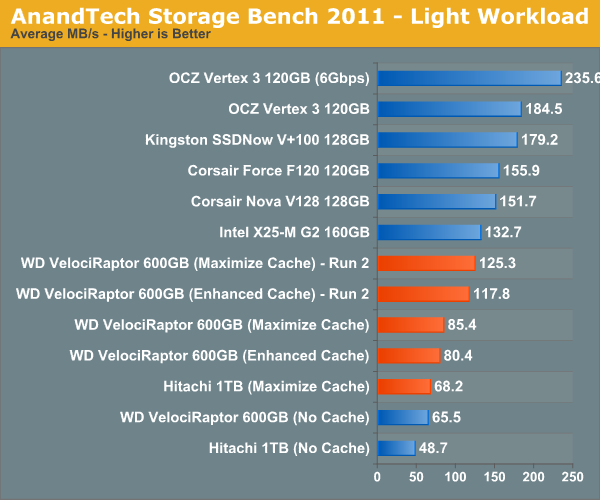
While the heavy workload was long enough to not show any benefit in performance by running it multiple times, our light workload boasts serious gains if we run it a second time with the cache active. With a light enough workload the SSD 311 as a cache can actually bring hard drive performance up to the level of an Intel X25-M G2, which is exactly what Intel was targeting with Smart Response Technology to begin with. For light users you can get an SSD-like experience at a fraction of the cost and without having to manage data across two drives.
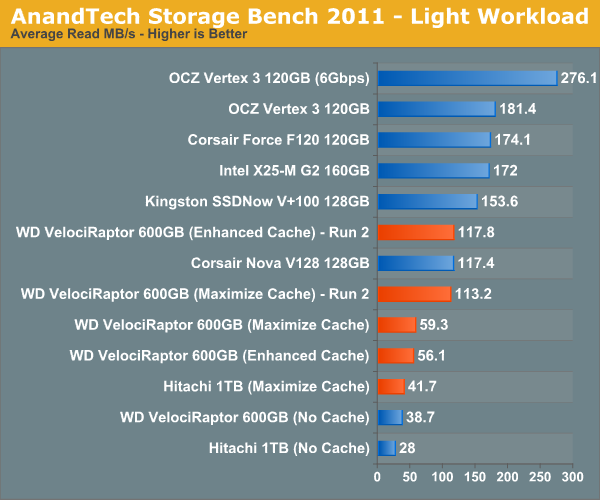
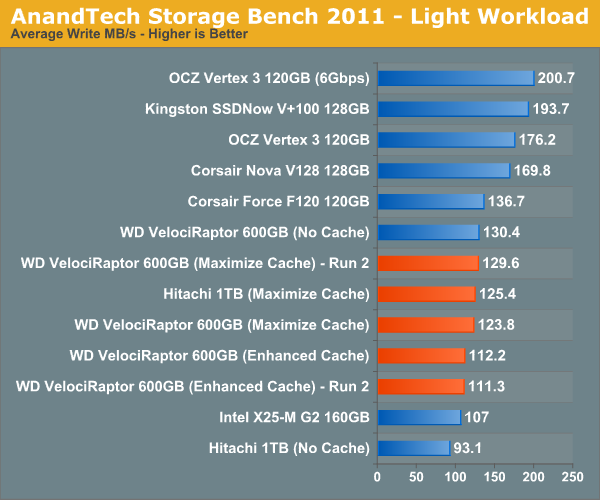
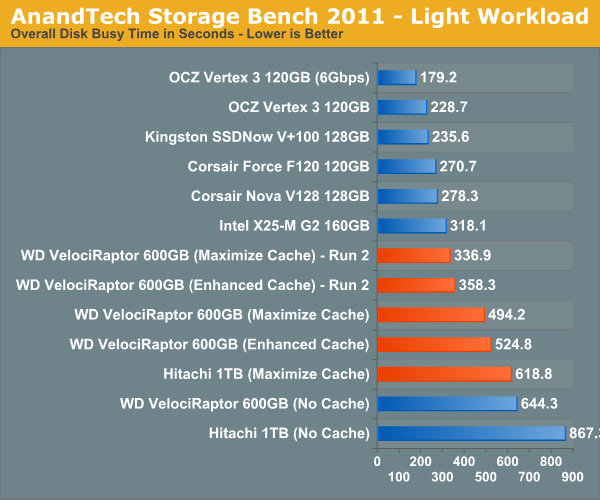
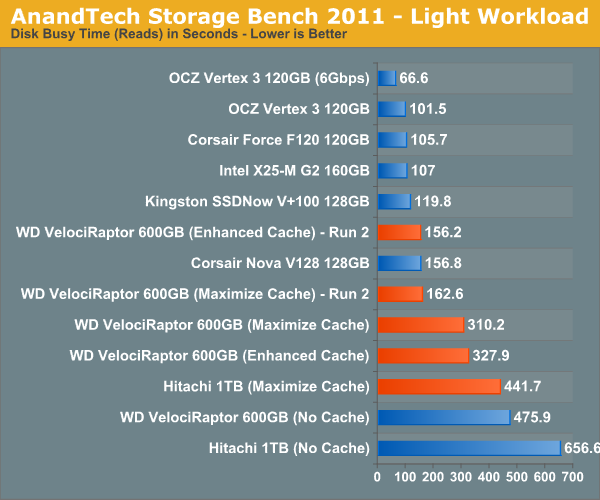
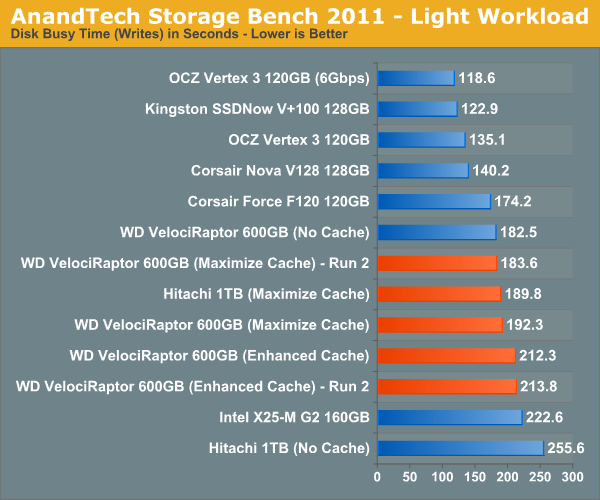










106 Comments
View All Comments
arthur449 - Wednesday, May 11, 2011 - link
Google "Steam Mover"LittleMic - Wednesday, May 11, 2011 - link
Indeed, someone has done a nice GUI to do the operation I just described.jimhsu - Wednesday, May 11, 2011 - link
http://schinagl.priv.at/nt/hardlinkshellext/hardli... for a general GUI way to do this, not just for Steam but for all content.jimhsu - Wednesday, May 11, 2011 - link
The basic steps.1. Manually move folder from SSD to hard drive.
2. On HDD, select folder, right click, "Pick Link Source"
3. On SSD, right click, "Drop As" > "Symbolic Link"
4. Profit!
velanapontinha - Wednesday, May 11, 2011 - link
I can really 'feel' Windows' superfecth advantadges, sam way I can feel when I'm requesting files that are not 'fetched'.This software-feature Intel is now pulling is very similar to Superfecth, although it uses as SSD instead of RAM, and a lot more is available in an SSD than it usually is in RAM.
It is a neat feature, and I'm sure it will be copied from other software houses from now on.
shatteredstone - Thursday, May 19, 2011 - link
In fact, Sun has invented a timemachine and copied this approach into ZFS years ago. ;-)The feature is called L2ARC (level 2 adaptive replacement cache) there and works nicely with SSDs (but also "fast" HDDs, battery-backed DDR nonvolatile memory, etc.). The nice thing is that if SRT takes off and these 20g SLC SSDs get competition and a price crunch (as well as general availability), using these features in ZFS is going to become a lot cheaper. Though even now there is nothing preventing you from using a dozen 240g SSDs as L2ARC (and ZIL) to speed up your farm of disks :)
AnnihilatorX - Wednesday, May 11, 2011 - link
Damn you Intel, so all my old first gen 16GB SSDs can go to the bin?Only you in the world uses 10bit channel for flash, and that's why you set a 20GB (18.6 formatted) limit? ******
MonkeyPaw - Wednesday, May 11, 2011 - link
Its Intel. If there's one thing that is almost certain, it's that forward compatibility is not going to happen.DanNeely - Wednesday, May 11, 2011 - link
Where does it say that the minimum size of the SRT cache is 20GB?Mr Perfect - Wednesday, May 11, 2011 - link
Dan's correct, it doesn't say you have to have a 20GB drive. Intel just happens to be launching a 20GB drive that they are hoping you will use for this.